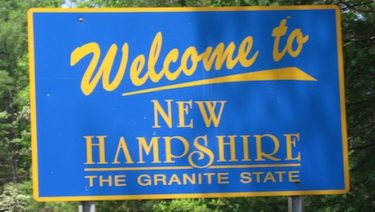By Christian Wade | The Center Square contributor
New Hampshire has won accolades for its post-pandemic recovery, but a new report suggests that the state’s attractiveness to businesses may be slipping.
The Granite State is the 37th best state in the U.S. for doing business, according to a recent study conducted by CNBC, down 12 spots from last year’s ranking.

New Hampshire’s high cost of living and aging workforce were also listed as barriers, winning the state low marks in both categories. The state got a “D” for cost of living and a “D-” for its aging workforce.
In America’s Top States for Business in 2021, CNBC ranked all 50 states on broad categories of competitiveness, including the cost of doing business, state of the infrastructure, access to capital, quality of education, cost-of-living and business friendliness.
New Hampshire got high marks for business friendliness (B+); life, health and inclusion (B); and education (A-) but low grades for cost of living (D) infrastructure (D) and access to capital (F).
“The Granite State offers a solid education system,” the report’s authors noted. “But roads and bridges, and the electrical grid, are soft spots.”
New Hampshire’s high cost of living and aging workforce were also listed as barriers, winning the state low marks in both categories. The state got a “D” for cost of living and a “D-” for its aging workforce.
Gov. Chris Sununu has repeatedly touted the state’s strong economy and near lowest-in-the-nation unemployment rate as it recovers from the pandemic ahead of other states.
Despite that, the state’s economy was given a D grade for credit ratings; budget spending, pension obligations, the health of the real estate market and job growth, among other criteria.
States could earn a maximum 2,500 points under CNBC’s methodology. New Hampshire was given a score of 1,124.
The top five states for business are Virginia, with North Carolina, Utah, Texas and Tennessee, according to the CNBC study.


